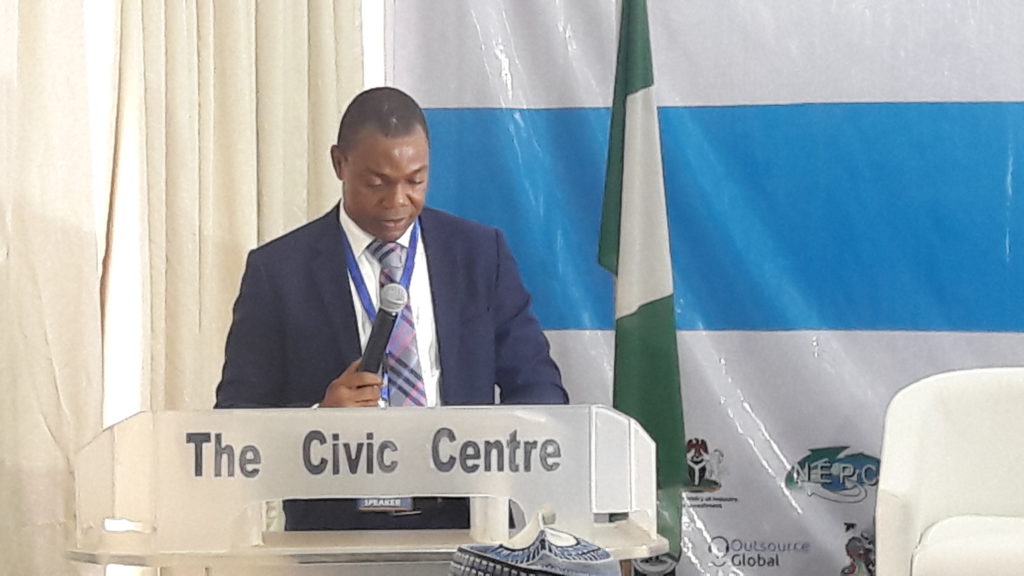As Exporters Eye ICT To Leverage Exports
By Aaron Ukodie
The federal government has said that it was targeting, in the next year, additional N4 trillion ($15billion) in the ICT sector. This would add to the $70 billion FDI, already in the kitty from the ICT sector, in the past 15years.
The permanent secretary (PS) of the Ministry of Communications, Mr Musa Istifanus, announced the FG projection at the Nigeria Export Summit and Award,which took place in Lagos yesterday. He said the FG’s optimism arose from the current pace of growth in the ICT sector.
ICT is currently contributing up to 10.11 per cent to Nigeria’s Gross Domestic Product (GDP) and had created 10 million jobs in the past 10 years, according to Istifanus.
Nigeria’s active subscribers which has hit 173 million as at April 2019 present the sector as one of the fastest growing of the Nigerian economy and is the second largest ICT market in Africa, the PS said.

Istifanus, who was represented at the event by his Technical Adviser, Dr Patrick Oghuma, said the government’s primary role is to ensure that the technological revolution does not leave “our fellow citizens behind, especially those who live outside the big metropolitan areas.
“This technological revolution cannot be realized through the survival of the fittest or of those with deepest pockets. We as government will offer every support to ensure that our local ICT firms have a qualitative competitive advantage over others”, Istifanus said.
He said the FG was determined to restore, not just growth, but growth that is diversified, inclusive, sustainable and robust in the long term, irrespective of whatever happens in the price of crude oil.
“Government is determined to make ICT investment –friendly policies to attract both foreign and local investments for the improvement and growth of the Nigerian digital ecosystem”, Istifanus added.
He expressed optimism that by the efforts of the ministry, the communication industry will, in the course of the President Mohammadu Buhari’s next level leadership, make quantum leaps and retains its current leadership role in the telecommunication space.
The Ministry of Communications was at the export event to speak on how in the digital era, ICT can be leveraged to help move business forward and put export on the fast lane.

Ambassador Ayola Olukani, of Nigerian Association of Chambers of Commerce, Industry, Mines and Agriculture ( NACCIMA), who gave a talk at the event, said the digital process can help a lot in fast tracking export process and put Nigeria’s product on the global market.
He said the Nigerian diaspora present a huge market for Nigeria’s products and has the potential to attract about $30 million yearly in export earnings.
Olukan noted that for Nigeria to fill the gap in the global agricultural market, Nigerian exporters would need to clean up their products and processes and comply with global exporting practices.
“There are rules and regulations out there that we must adhere to”, he said.

Amal Hassan, CEO of Outsource Global, who narrated her experience of how she started an outsourcing business in Nigeria, which has now become a world-class venture, servicing clients from United States and Japan, lamented how Nigeria’s biggest assets, the human talents are being neglected.
Nigerians, she said, have all the required skill sets to take on any business and job challenge that is put before them, if only they are given the opportunity and the right space to work.
Her business, she noted is an example of how, all the over 700 workers in her employment in Kano, Abuja and Lagos today are Nigerians manning all the outsourcing processes and demonstrating talents and gifts which are known to be possessed by others.
“If Nigeria drops oil and say we will focus on skills we will succeed. Nigerians can adapt to any kind of task. There is no process that you give to a Nigerian that he will not succeed at. All you need to put in place is a structured environment”, Hassan noted.

Chairman, Export Group of NACCIMA, Tope Awe, added that beyond the Nigerian market, exporters need to know that there is a bigger market out there that requires certain standards to access.
“We need to build capacity and knowledge, because the biggest problem to succeeding in the export business is understanding how the processes work”, he said.
He said NACCIMA would soon set up B2B (business –to- business) platform known as Net-Connect, that would connect NACCIMA members to the international market.












